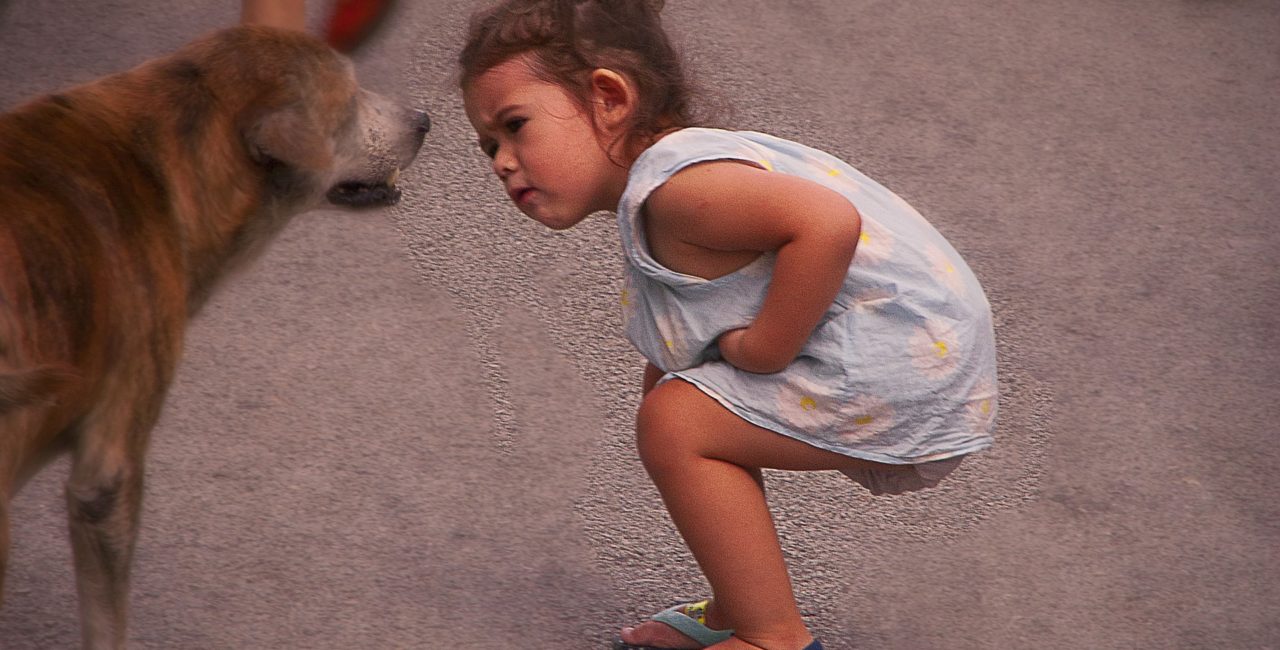Bringing a canine companion into the family can be an exciting and rewarding experience. At Van Isle Veterinary Hospital, we often get asked which breed is the most ideal for children.
Parents often hope to teach their children a sense of responsibility and many like the idea of providing their children with a lovable playmate. In the right situation, children can learn so much more: empathy, nurturing skills, confidence and resilience to change. We cherish our childhood memories of our first family pet.
Choosing the right dog for your family
Different dogs do well with different children. Though it does not guarantee a dog will be a good or bad risk around children, breed is a factor to consider. When choosing a dog or deciding whether to allow your child contact with a dog, you need to understand the normal behaviour of that breed or mix of breeds. You also need to know that particular dog and most importantly, if the dog is not yours, know the owner.
Sometimes, an adult dog may be a better fit with young children. They’ve already formed a good opinion of children and can be an excellent choice. If you already have a dog and are expecting a child, an evaluation should be done if your dog has shown aggression towards anyone, especially young people. The same is true if your dog has shown any kind of fear of children.
Experts agree that no child under school age should be left alone with any dog, no matter how gentle the child or the dog may be. The age limit can be even higher if the dog or child is quite energetic. This is to protect both the child and the dog. A young child doesn’t understand that certain actions can hurt or be perceived as threatening. When a dog becomes convinced that children inflict pain or fear, the damage has already been done to that dog’s trust. If the dog believes you will stand by and let this happen, eventually the dog feels it has no choice but self-defense.
Training, not just for dogs
Training children how to be dog responsible should start early. Very young children can learn about humane treatment and how to interact appropriately around animals. They should learn which part’s of the dog’s body can be touched and how and when to pet them. This is a very important lesson when living with an older pet who may be suffering from the aches and pains of arthritis, or a dog that may not be able to hear when a child is approaching. They should not disturb the dog when he is resting, eating or chewing on his favourite toy. They should learn that dog’s are not toys and can feel pain. An essential safety rule for children with any dog is to ask the responsible adult for permission before approaching or touching any dog.
Training your dog or puppy to be comfortable around children should also start early. Well socialized puppies can make confident, tolerant, adult dogs. Puppies should have pleasant encounters with different types of people and children of different ages every day. It is important that these encounters are enjoyable for your puppy. If your pup starts to act anxious or overwhelmed, give him more space and freedom to approach when ready.
Benefits of owning a family dog
There are so many wonderful benefits for children in having a canine companion as part of the family. Dog ownership can have a positive impact on self-esteem and sensitivity toward others. With a dog, acceptance is total and this provides a sense of self-worth. This doesn’t mean that all children are ready for pet ownership. Parents should make sure that their child desires a dog before rushing into such a big commitment. If you are contemplating getting a new dog for the family or perhaps you already have a loved companion and are expecting your first child, a canine behaviorist or dog trainer is a great source for information. We are very fortunate here in the Comox Valley to have several dog trainers and facilities to reach out to. You can also visit your family veterinarian for resources and tips for a successful addition to your 2 legged and 4 legged family.
Written by Van Isle Veterinary Hospital




